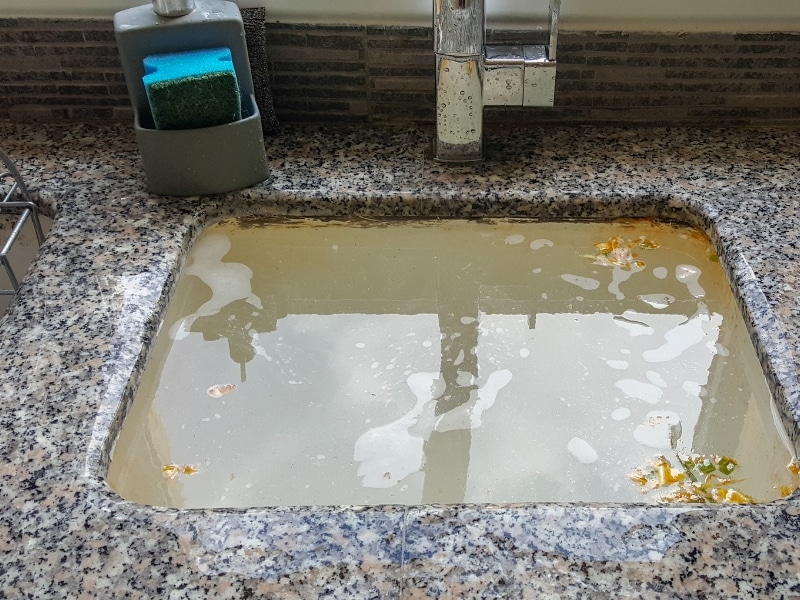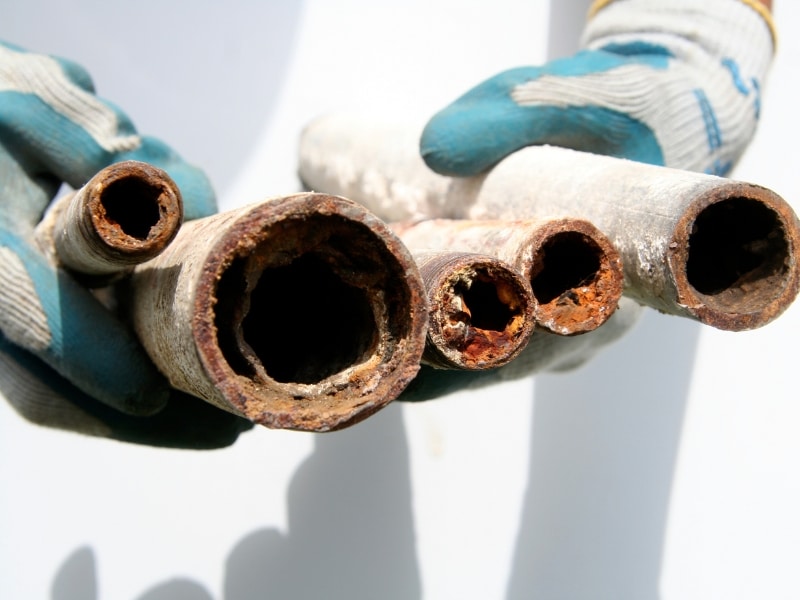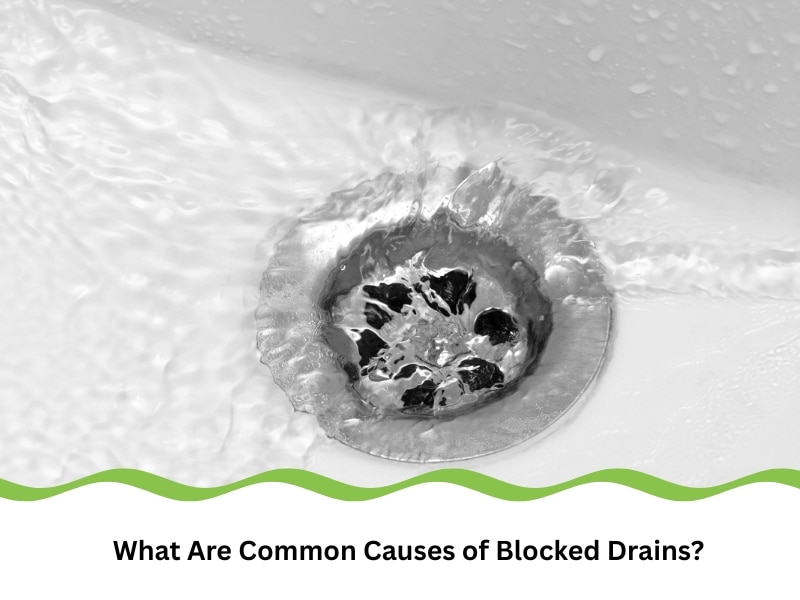Blocked drains can happen to any household, but it’s the sneaky, often-overlooked culprits that cause the biggest headaches. Ignoring small habits or minor clogs often leads to large-scale plumbing disasters. By understanding the lesser-known causes of blocked drains, homeowners can prevent expensive repairs and keep their drains flowing smoothly. This article breaks down those hidden triggers and shows you how to protect your plumbing before it’s too late.
What are the most overlooked causes of blocked drains?
Not every blockage is caused by a big, obvious clog. Many are the result of small, repeated behaviours or materials that build up over time. Because they’re subtle, they often go unnoticed until the water stops draining. Commonly overlooked causes include:
- Tree roots growing into underground pipes, particularly in older homes with clay plumbing.
- Flushable wipes, which may not break down like regular toilet paper, despite the label.
- Soap scum buildup, especially in bathrooms with hard water.
- Hair accumulation, combined with shampoo and conditioner residue forms dense clogs.
These causes may not seem significant at first, but they can gradually clog your plumbing. Spotting them early is key, yet many homeowners focus only on the most obvious signs. Taking the time to notice slow drains or odd gurgling sounds can save you from serious repairs.
How do everyday household habits lead to plumbing issues?
Most plumbing problems don’t start overnight. It’s your daily routines, what you rinse, flush, or wash down, that often lead to trouble. Many people don’t connect the dots between their habits and blocked drains. Examples of habits that harm:
- Using too much toilet paper, which clumps and slows water flow.
- Tipping food scraps down the sink instead of using the bin or compost.
- Running washing machines with lint-heavy loads without a lint trap.
- Pouring cooking oil down the kitchen sink, which cools and hardens in the pipes.

These actions, repeated daily, quietly layer debris inside the pipes. They also contribute to bigger problems, such as grease traps overflowing or bathroom drains backing up. One of the sneakiest issues is when household drains begin to gurgle — a subtle yet significant warning sign. If you’re curious about what causes strange noises in household drains, understanding these habits is a smart place to start.
Why do minor causes of blocked drains turn into major issues?
It’s tempting to dismiss a slow-draining sink or a bad smell as a one-off. But minor blockages are often a warning shot. Left untreated, they escalate — and fast. Here’s what can happen:
- Water pressure builds, leading to burst pipes behind walls or under floors.
- Sewage backs up, creating an unhealthy and costly mess to clean up.
- Pipes corrode faster, especially if foreign materials are trapped for long periods.
- Local flooding around the home due to blocked stormwater flow.
That dodgy kitchen smell? It could be a symptom of a build-up you’re not seeing. Learn how food particles and grease contribute to drain odours to understand better how these everyday nuisances develop into health hazards.
What steps can homeowners take to prevent blocked drains?
You don’t need to be a plumber to keep your drains healthy. Simple, regular actions can prevent most common causes of blockage, especially the sneaky ones. Practical prevention steps:
- Install drain strainers to catch hair and debris in the bathroom and kitchen.
- Avoid pouring fat or oil down the sink — use a jar or paper towel instead.
- Flush pipes with hot water regularly to break up small build-ups.
- Be mindful of what goes down the toilet — stick to the three P’s: pee, poo, and (toilet) paper.
When you’re ready to go a step further, explore how to find effective ways to manage the causes of blocked drains with trusted local services.
Here’s a quick summary to keep your drains drama-free:
| Habit | Problem It Prevents | Tool to Use |
| Use sink strainers | Stops hair/food clogs | Mesh sink guards |
| Wipe plates into the bin | Reduces grease and solids | A scraper or a paper towel |
| Bin cooking oil | Avoids pipe buildup | Tin or jar |
| Limit paper use in toilets | Prevents flush failures | Dual flush technique |
| Clear garden drains regularly | Stops outside blockages | Rake or broom |
How does routine plumbing maintenance help avoid costly repairs?
Routine maintenance isn’t just a good habit — it’s a money saver. Waiting until something goes wrong often means higher repair bills, water damage, or worse. Why maintenance matters:
- CCTV drain inspections catch issues before you notice symptoms.
- Hydro jetting clears tough build-ups that DIY tools can’t touch.
- Professional advice helps identify risks unique to your home setup.
- Regular servicing extends the life of your pipes and fixtures.
Ignoring maintenance means you’re playing roulette with your plumbing. For homes with shared or ageing pipework, you’re more likely to run into complex issues. A good maintenance plan saves you the hassle and cost of emergency call-outs.
Are older homes at greater risk for recurring drain problems?
Older properties might have more charm, but they often come with hidden plumbing risks. Materials used in decades past aren’t always up to modern standards, and that can spell trouble. Risks common in older homes:
- Clay pipes are more prone to cracking and root intrusion.
- Lack of proper stormwater drainage, leading to water pooling or backup.
- A history of DIY fixes, which may not meet current codes.
- Old plumbing layouts are not designed for today’s water usage patterns.

In regions with heavy rainfall, old stormwater setups are especially vulnerable. That’s why understanding why proper stormwater drainage matters for households is so important.
What happens if you ignore early warning signs of a blockage?
Drains usually give you a heads-up before a major issue hits. Ignoring these signs can lead to much more significant and more expensive problems. Signs you shouldn’t ignore:
- Water is draining slowly from sinks, showers, or tubs.
- Unpleasant smells, especially in the kitchen or laundry.
- Gurgling sounds are heard when water flows through pipes.
- Water is backing up or pooling in areas it shouldn’t.
If you catch these issues early, many can be quickly resolved. But wait too long, and you could face burst pipes or water damage. Prevention is always cheaper than repairs, especially when it comes to plumbing.
Final thoughts
Blocked drains don’t usually start with a bang. It’s the small, ignored triggers — from what you rinse to how old your pipes are — that build into serious headaches. Prevention, awareness, and routine care go a long way toward protecting your home and wallet. For tailored advice and support, you can always speak with Eco Plumbers 24/7 about your plumbing needs.

